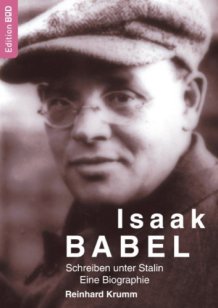a.k.a. applying the Russian method to scientific writing
About 150 years ago, there lived a man in Russia, whose name was Anton Chekhov. He was a doctor by training, but also happened to write some really amazing fiction (and also non-fiction, actually). Furthermore, he formulated a dramatic principle called Chekhov’s gun, which states: “remove everything that has no relevance to the story. If you say in the first chapter that there is a rifle hanging on the wall, in the second or third chapter it absolutely must go off. If it’s not going to be fired, it shouldn’t be hanging there.”

According to the principle of Checkov’s gun you should not introduce an element into a narrative, unless it is necessary for the story to proceed. Picture courtesy of luckyfish @ flickr.
The last few weeks I have been thinking about this principle a lot, while I’ve been rewriting a paper for review. I mean, I hear a lot about how the process of peer-review and the old-fashioned publishing model is outdated in an age where it is possible to publish online in an instant (for example here and here). And I agree that when it comes to simply making data/results available, the web has a lot to offer. But a scientific paper is not only about data, it is also a story: you introduce the actors (genes, protein, theories to be tested) in the introduction/first act, you let the plot unfold in the results (second act), and then wrap everything up, bury the victims, let the heroes and heroines live happily-ever-after in the discussion (third act). And throughout the piece, you try to maintain enough tension so your readers are hooked and continue reading. Obviously a scientific paper is not a thriller, but I consider it one of the greatest compliments when someone tells me: “I don’t work in your field and I thought I wouldn’t understand your paper, but actually it wasn’t so difficult, and I read it until the end, and I think I understand what you were talking about”.
What does this have to do with Chekhov and peer review? Well, one aspect of making a paper readable is to apply the principle of Chekhov’s gun. But when I first submit a paper, it is like showing someone my newborn baby – everything about is perfect. Luckily, peer-review is a slow beast, and by the time I get the reviewers comments, I can distance myself, and often find flaws in the flow of argumentation (the dramatic arc) or unnecessary data which doesn’t add to the scientific discussion at all (the gun that was never fired). Thus, through the review process, I get a second chance to fix these problems and (hopefully) make my paper a more enjoyable read.

Isaak Babel, a Russian author, who perfected his novels endlessly. Here, on the cover of a great biography by Reinhard Krumm.
To do so, I generally apply a method by another great Russian author, Isaak Babel. Isaak Babel was a journalist and writer, who is probably most famous for a single book, The Red Cavalry. The Red Cavalry tells about the horrors Babel observed during the Polish-Soviet war of 1919-1921, in which he participated as a reporter. The thing about The Red Cavalry is that Babel kept re-writing it and re-editing it repeatedly, sentence by sentence. Every time he would delete a word and check if this changed the meaning of the sentence. Then he would re-introduce the word or a synonym of the word and check if this added value or atmosphere. He repeated this process over and over again, until the story had been distilled into literature in its purest form.
I don’t claim my papers are similar literary masterpieces or that applying the Russian method is the only way to write a good paper. Some researchers are probably literary geniuses who get it right the first time. But based on the random sample I read, many are not. Therefore, scientific writing will certainly benefit from a process (peer review or other) that requires authors to take a step back and reflect on a piece of writing.
For the record, I will post this immediately after writing. Personally, I don’t have the discipline to wait, unless some form of review is involved 😉

Excellent read! I think that the principle of Chekhov’s gun does serve an excellent purpose in fiction, and I mostly agree that it is useful for scientific writing. One point in favor of the gun, though, is that sometimes it’s those little nuggets that end up being useful to someone else, somewhere, even if not directly important to the story at hand. I had a number of people ask me about the half-life of GFP mRNA from one of my papers even though it was at best tangentially related to the main point of the paper. Overall, though, I agree with your main point–and especially with the notion that most science writing stinks!
Pingback: Everything Happens for a Reason: Foreshadowing in Fiction Writing | Clara Ryanne Heart
Pingback: Everything Happens for a Reason: Foreshadowing in Fiction Writing | Help Me, Naomi
Pingback: Foreshadowing in Fiction Writing: Everything Happens for a Reason | Help Me, Naomi